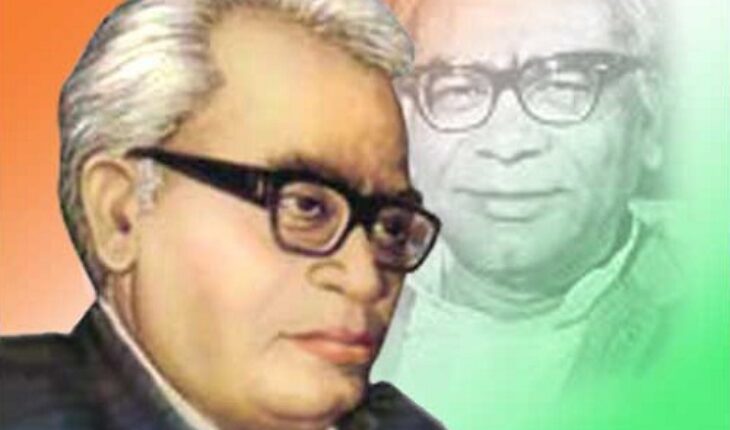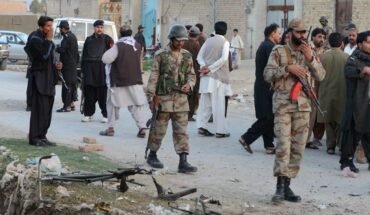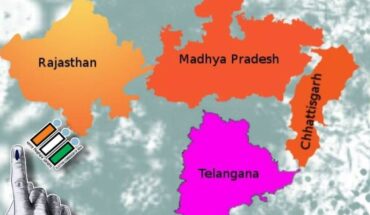Dr. Ram Manohar Lohia is called the originator of socialist philosophy, and his followers are called socialists. According to Dr. Lohia, socialism is the theory by following which even the deprived sections can be brought into the mainstream of development. In line with the definition of socialism, it is a political and economic system in which the means of production and property are publicly owned and are not controlled by the government. Its basic essence is that public ownership of the means of production plays an important role in bringing equality in the society. For this reason, it is considered the best hypothesis of development in many countries of the world. However, a mixed economy has been adopted in India. That is, here the ownership of the means of production is in both government and private hands. In other words, it is a mixture of capitalism and socialist principles.
In accordance with the socialism theory, Dr. Lohia was a supporter of inclusive development, that is, he wanted the participation of all the people of the country in ensuring development. This will be possible only when all the people of the country are self-reliant, that is, someone may be employed or self-employed, but not unemployed. He was also an advocate of individual freedom and democracy, that is, everyone should be personally independent, use their rights, but at the same time also discharge certain responsibilities, because only then our society and country can move forward on the path of development.
Apart from socialism, Dr. Lohia was also influenced by Gandhism. He always tried to follow in Gandhi’s footsteps. Mahatma Gandhi and Dr. Lohia had similar ideologies regarding the ways to boost the rural economy. According to Dr. Lohia, to support the rural population of the country, it is necessary to establish cottage and small-scale industries in rural areas, as well as to provide basic facilities in rural areas, strengthen the infrastructure, reinforce the system of health, education etc.
Dr. Lohia believed that there is a lack of capital and technical skills in the country and hence, the pace of development in India cannot be accelerated by adopting the developmental strategy of Europe or Russia. He wanted that the path between Gandhiji’s cottage industry and Nehru’s heavy industry vision should be adopted in the country, so that inclusive development can be strengthened in the country.
As said by him, there should be equality in the pace of agricultural and industrial development so that farmers and villagers can also be taken forward on the path of development. Dr. Lohia wanted that heavy industries like railways, steel etc. should run under the supervision of the central government, but the ownership and management of agriculture-based industries should be left to districts, tehsils and villages. Such thinking of Dr. Lohia advocates giving concrete form to the decentralized system in the country for the proper development of democracy and socialist economic ideology.
In accordance with Dr. Lohia, the government’s plan should not be one that protects capitalism. The deprived section of the society also has the right to live. Capitalist policy increases poverty, unemployment, anarchy, corruption etc. Therefore, the government should implement schemes that ensure the development of all. He was also against untouchability and considered discrimination because of caste and colour as the biggest obstacle in the path of development. As stated by him, rural areas and villagers are backward because of these. Unless all the people in the country become self-reliant, the development of villages, towns, cities and the country cannot happen smoothly.
Dr. Lohia gave special preference to youth and women. He believed that youth are the leaders of the country because they remain involved in the development of the country for a long time. Therefore, they need to be skilled so that they do not remain unemployed and continue to play an important role in increasing economic activities in the country. Women in India have been living as slaves for centuries. Sometimes of parents, sometimes of husbands and sometimes of sons. They have been bought and sold in the market like a commodity. Because of this, they are backward from men in all affairs. Therefore, Dr. Lohia was strongly against discrimination based on gender. Consistent with him, the problem of gender discrimination can be eradicated from the root by giving women equal status as men in the field of education and in this case, women only need to be given priority in every task instead of equal opportunity. In this sequence, women should be given equal status as men on political, social and economic fronts.
To ensure socialist movement and inclusive development in the country, participation of women in economic activities is as important as that of men. Without active participation of women in mainstream activities, the country cannot be taken forward to the pinnacle of progress and development. Dr. Lohia wanted to make women economically self-reliant. He wanted to provide women not only equal pay for equal work but also equality of opportunity and law. Not only this, he was also in favour of providing special opportunities to women to compensate for their natural deficiencies in working on par with men.
Dr. Lohia knew that in a large country like India, the deprived sections cannot be ignored. They cannot be left alone in poverty and in times of crisis. Therefore, he supported the “Ghera Daalo” movement going on in Deoria in Uttar Pradesh and Daltonganj in Bihar to solve the problems of food in case of famine in the country. Socialist ideology believes in the method of “Ghera Daalo” movement, which appeals to the government to either “Give Food to the Hungry” or “Send them to Jail” so that they can get meals at least two times in a day. Dr. Lohia’s support to this movement shows that the socialist ideology wants to move forward by taking along all sections of society.
Dr. Lohia was in favour of international trade, but he was not in favour of one-sided trade in any case, that is, he wanted that imports and exports with other countries should be equal, so that there is no trade deficit in the country and the concept of “Made in India” gets promoted. He wanted cottage, small, medium and large industries to be developed in the rural areas, along with improving the infrastructure there, providing basic facilities etc. This will stop the migration of villagers and the development of rural areas will also be smooth.
Along with Dr. Lohia, developed countries should support and help developing countries in global trade, so that backward and developing countries can move forward. They should be helped in acquiring such economic systems, which can help them move forward. Man’s fight should be against hunger, disease and illiteracy. Economic inequality is the main source of discord and war in the world.
Dr. Lohia believed in decentralization of economic and political powers. Administration in India gives the concept of “four-pillar state”, which is based on the principle of separation of powers. In accordance with Dr. Lohia, the four pillars of the state are the village, district, province and centre, which have an interdependent relationship. Sovereign powers should not remain alone in the centre. It should also extend to the district and villages. In accordance with Dr. Lohia, there should be decentralisation of political and economic powers among these four columns. Unless this is done, democratic institutions cannot flourish and active participation of people in administration cannot become a reality. Concentration of economic power gives rise to inequality and in the concept of capitalism, economic power is concentrated in a few hands, which is an obstacle to the inclusive development of the country.
Dr Lohia was against imperialism and colonialism. As per him, such a policy of any country cannot lead to the development of that country, and it is a serious obstacle to individual freedom and equal development in the countries of the world and is also against humanity.
He was a supporter of capital formation. He believed that industrialization is not possible without capital. In a poor country like India, capital formation could be done only by adopting the path of equality. However, counter to him, the concept of capitalism cannot succeed in a country like India. It cannot increase wealth or bring prosperity. He was also critical of those forces which were following capitalism or communism. He was against giving direct assistance to an underdeveloped economy like India. He wanted India to develop itself with its own resources. He wanted India to become self-reliant and indigenous products should dominate the country and along with that they can also be exported to other countries.
Dr. Lohia believed that the face of rural India can be changed through cottage industry. Baskets, pickles, textile manufacturing, sewing-spinning, shoes, slippers, iron products, utensils, various kind of foodstuffs etc. can be manufactured under cottage industry. Mahatma Gandhi also inspired the people of every village to promote textile industry through spinning wheel, due to which even today Khadi, silk and other types of clothes are being manufactured on a large scale in villages.
India became independent after nearly 200 years of slavery, due to which it had lagged on all important parameters of the economy. During that period, a large population of the country lived in villages. Nevertheless, Dr. Lohia wanted that the development of the country should be ensured by developing the people of the country and in this journey, the goal of development could be achieved only by making everyone self-reliant and developing every sector.
According to Dr. Lohia, along with agriculture, cottage and small-scale industries also need to be promoted in rural India. Only through these can the villagers be made self-reliant. With everyone’s participation in development, the country could automatically become economically strong and for this, there is a need to decentralize power. Dr. Lohia was an advocate of decentralization. According to him, the country’s economy can be strengthened only by supporting the rural economy.
Satish Singh, Ahmedabad based senior Columnist, views are personal.






